These following documents detail Huynh Van Thanh's efforts to appeal the decision to reject his claim for refugee status. Previously, Vietnamese who fled Vietnam were automatically given refugee status, but in August 1988, this exception was removed and Vietnamese had to follow the same refugee status process as everyone else where they had to demonstrate fear of persecution as stated in the 1950 Convention relating to the Status of Refugees, which defines a refugee as:
As a result of events occurring before 1 January 1951 and owing to a well-founded fear of being persecuted for reasons of race, religion, nationality, membership of a particular social group or political opinion, is outside the country of his nationality and is unable, or owing to such fear, is unwilling to avail himself of the protection of that country; or who, not having a nationality and being outside the country of his former habitual residence as a result of such events, is unable or, owing to such fear, is unwilling to return to it.
Mr. Huynh, who received his decision in 1993, fell into this category of Vietnamese and Southeast Asians who now had to essentially prove their need for refugee status. As he was rejected, so too were his wife, son, and stepson. The reason for rejection is listed as:
"THE APPLICANT'S STATEMENT OF THE FACTS DOES NOT SUBSTANTIATE A WELL ROUNDED FEAR OF PERSECUTION OF THE 1950 CONVENTION, BECAUSE THE APPLICANT WAS ABLE TO CONDUCT A TOLERABLE LIFE IN VIETNAM."
In this appeal packet, there is a Letter of Introduction written by an acquaintance, a copy of the official decision, the actual appeal request itself (which is actually in English), and a series of supporting documents (some of which are missing). We can only assume that his original application was less detailed, as he provides an incredible amount of additional information in his appeal.
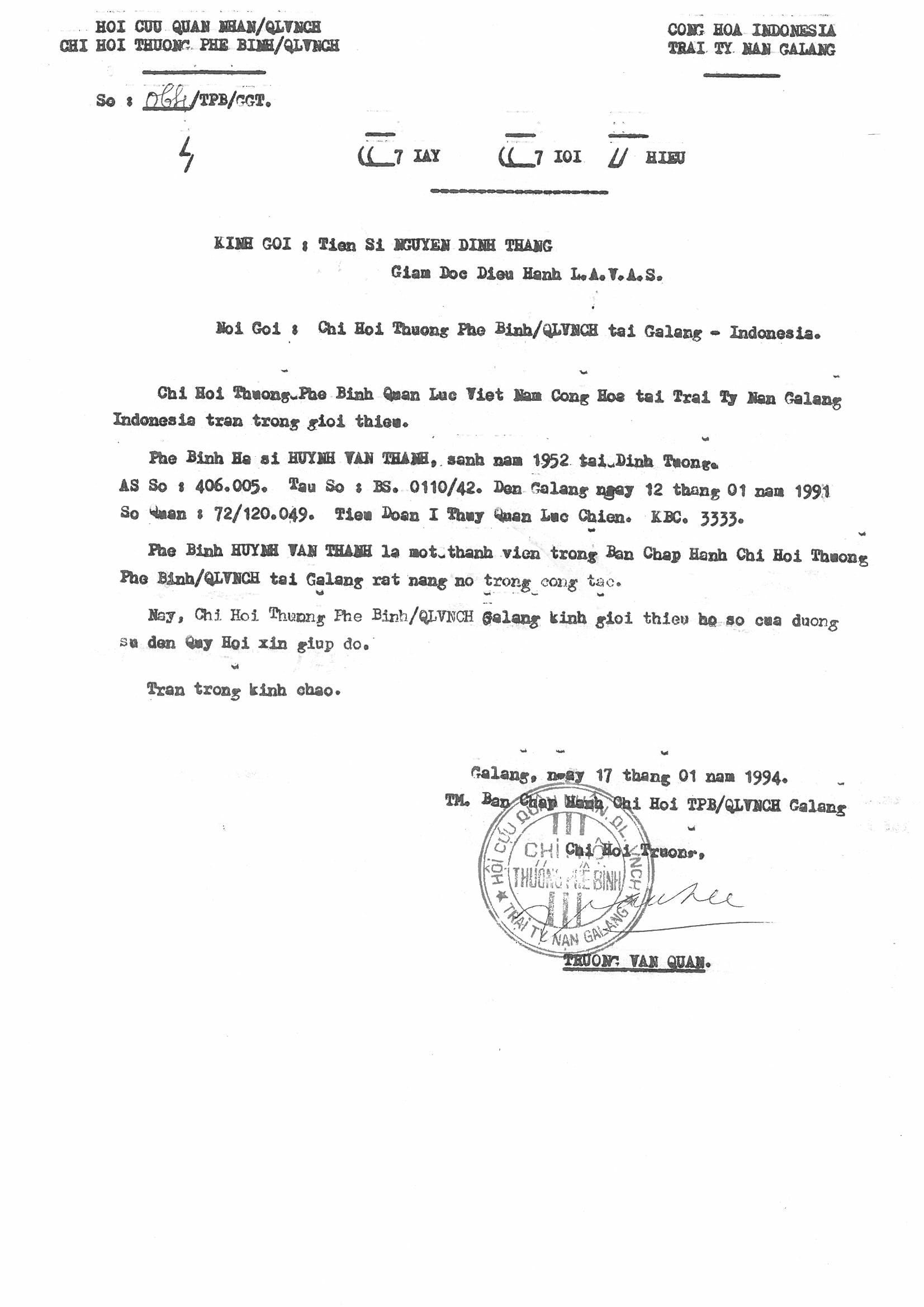
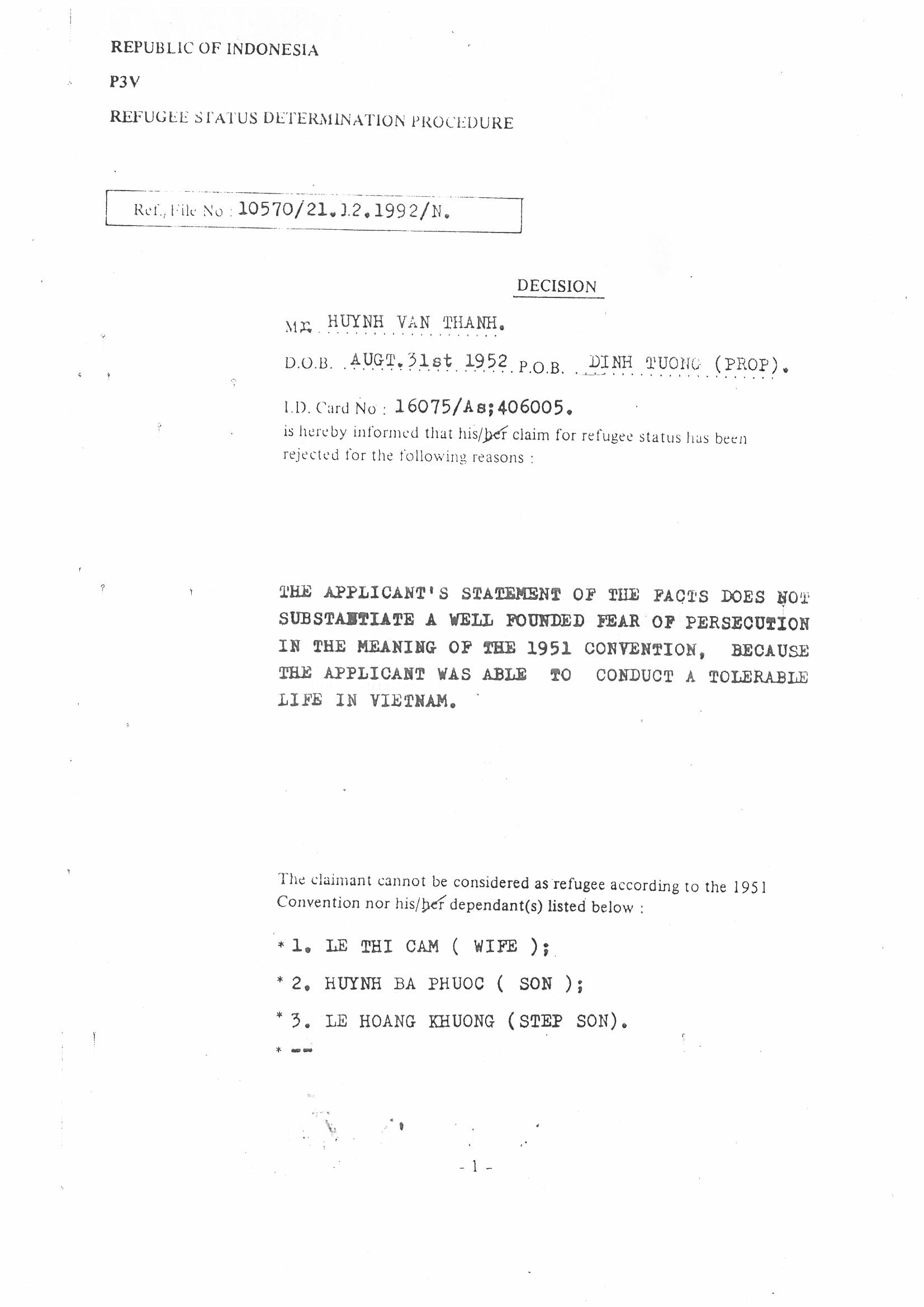
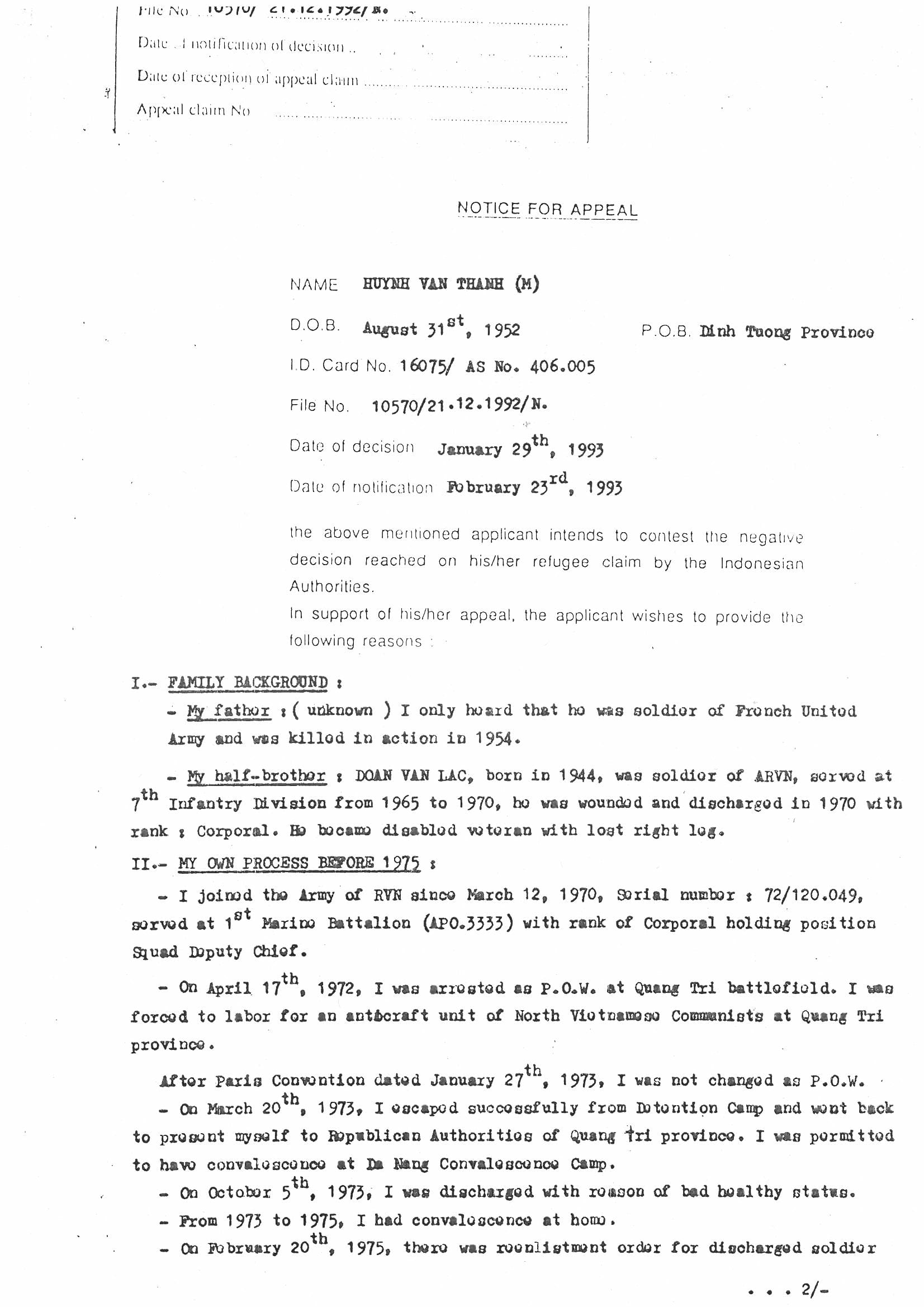
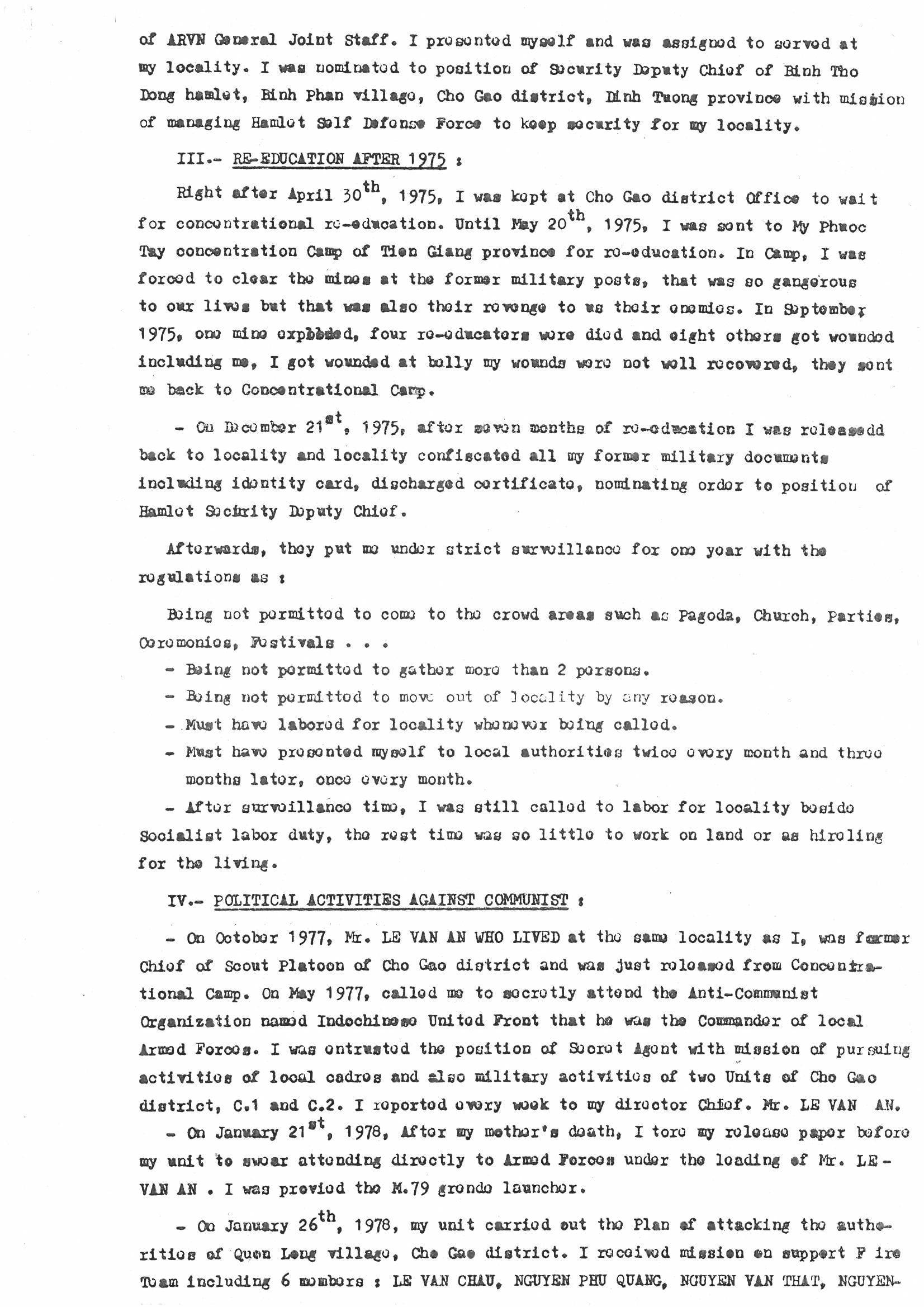
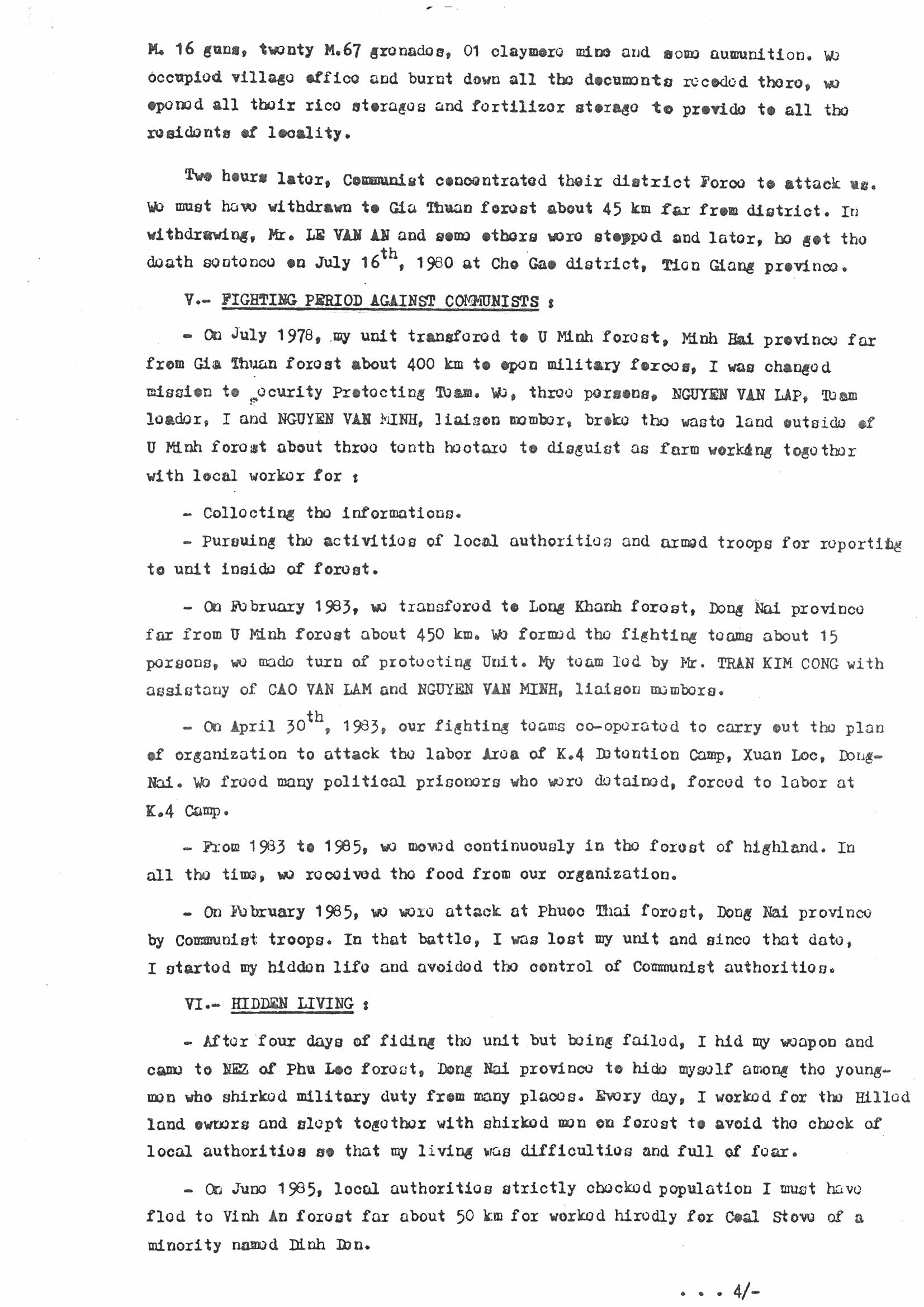
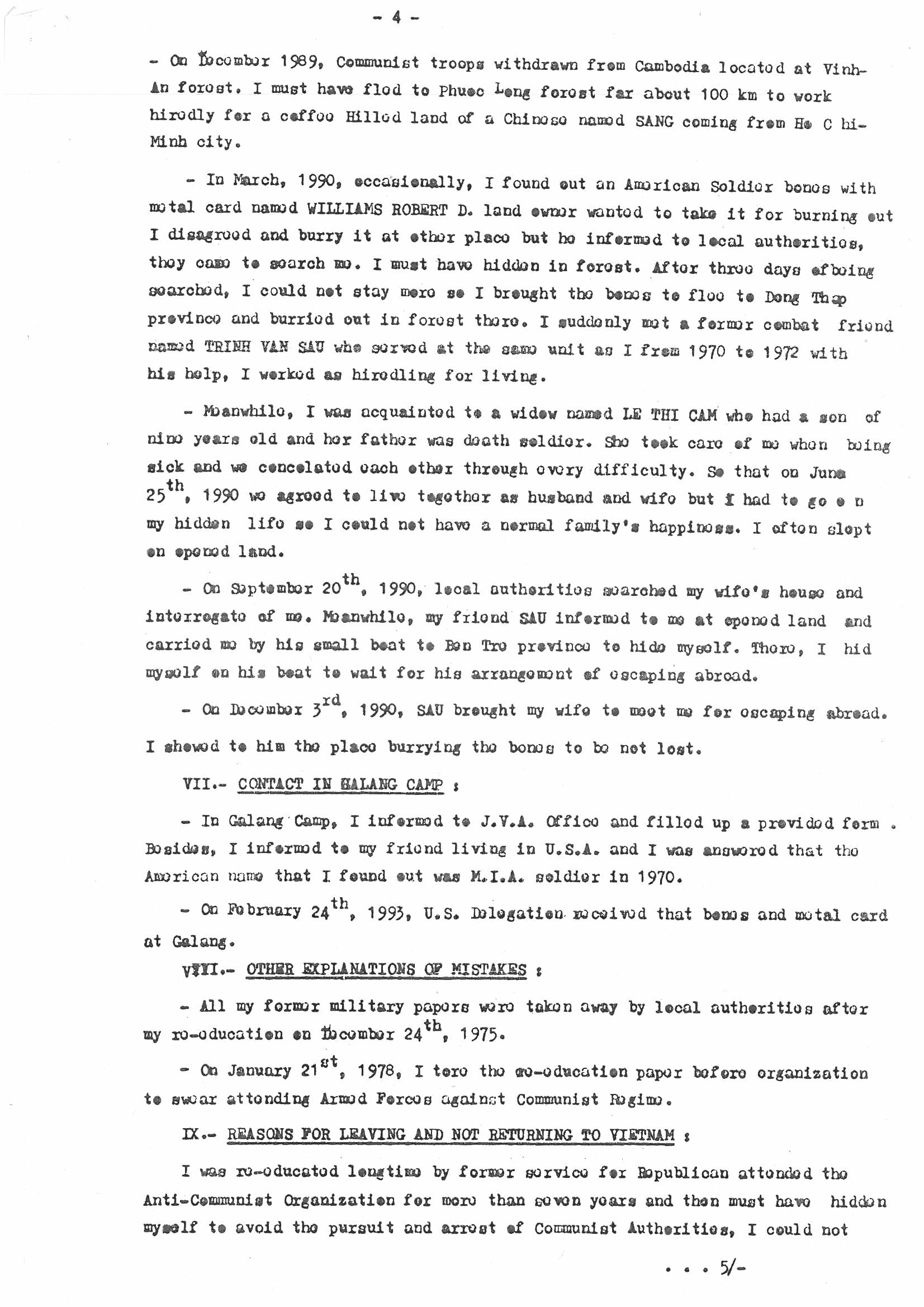
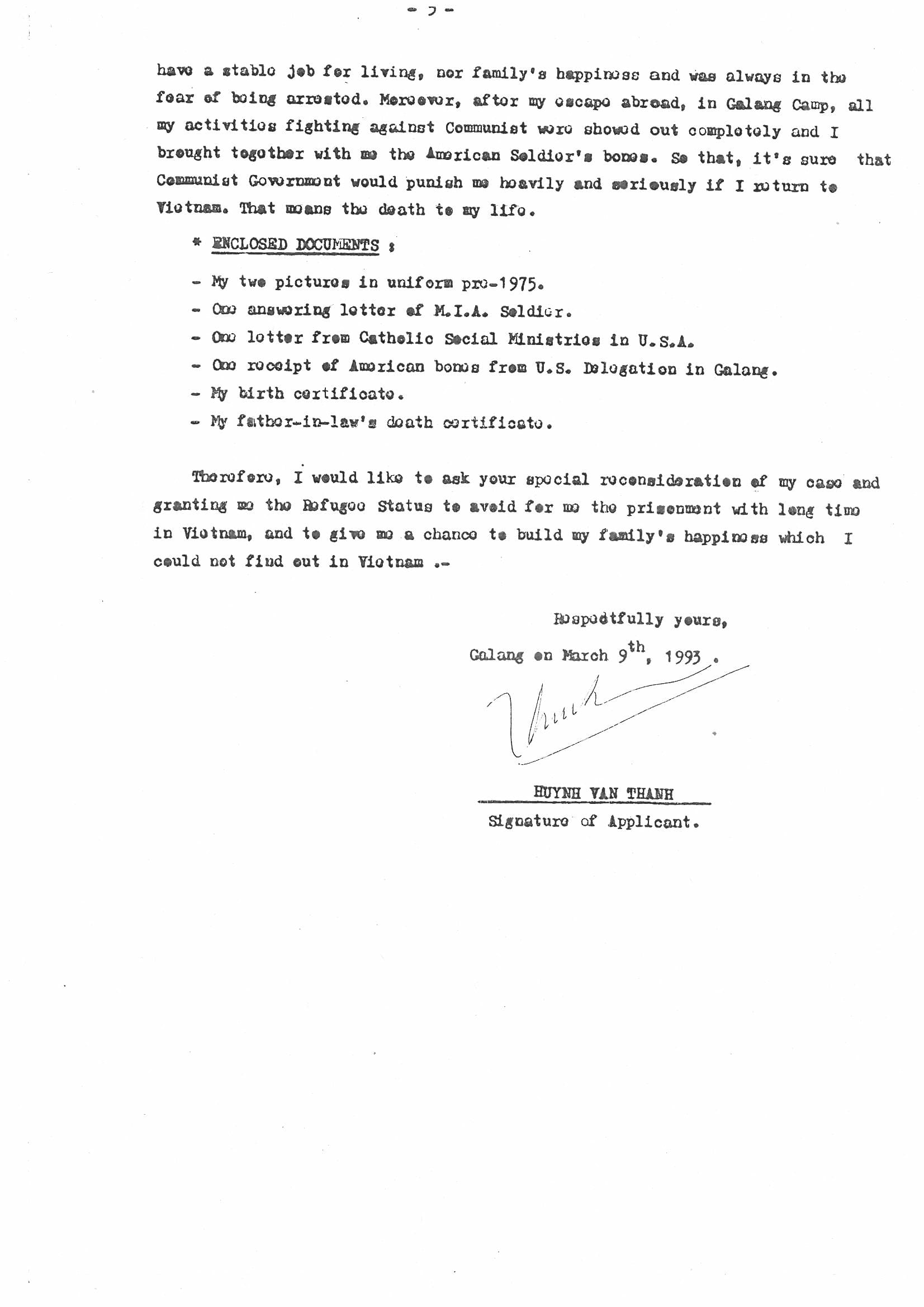
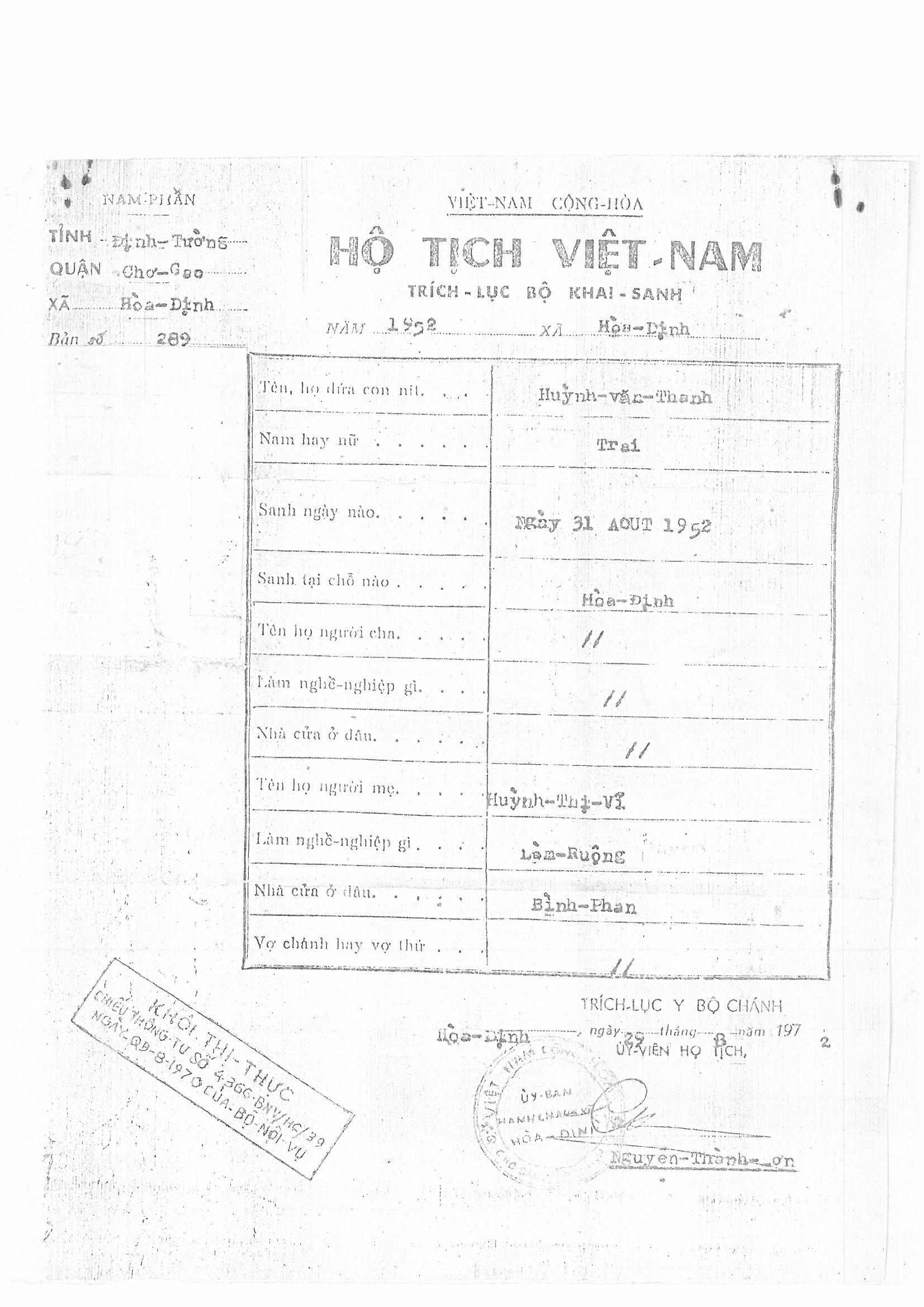
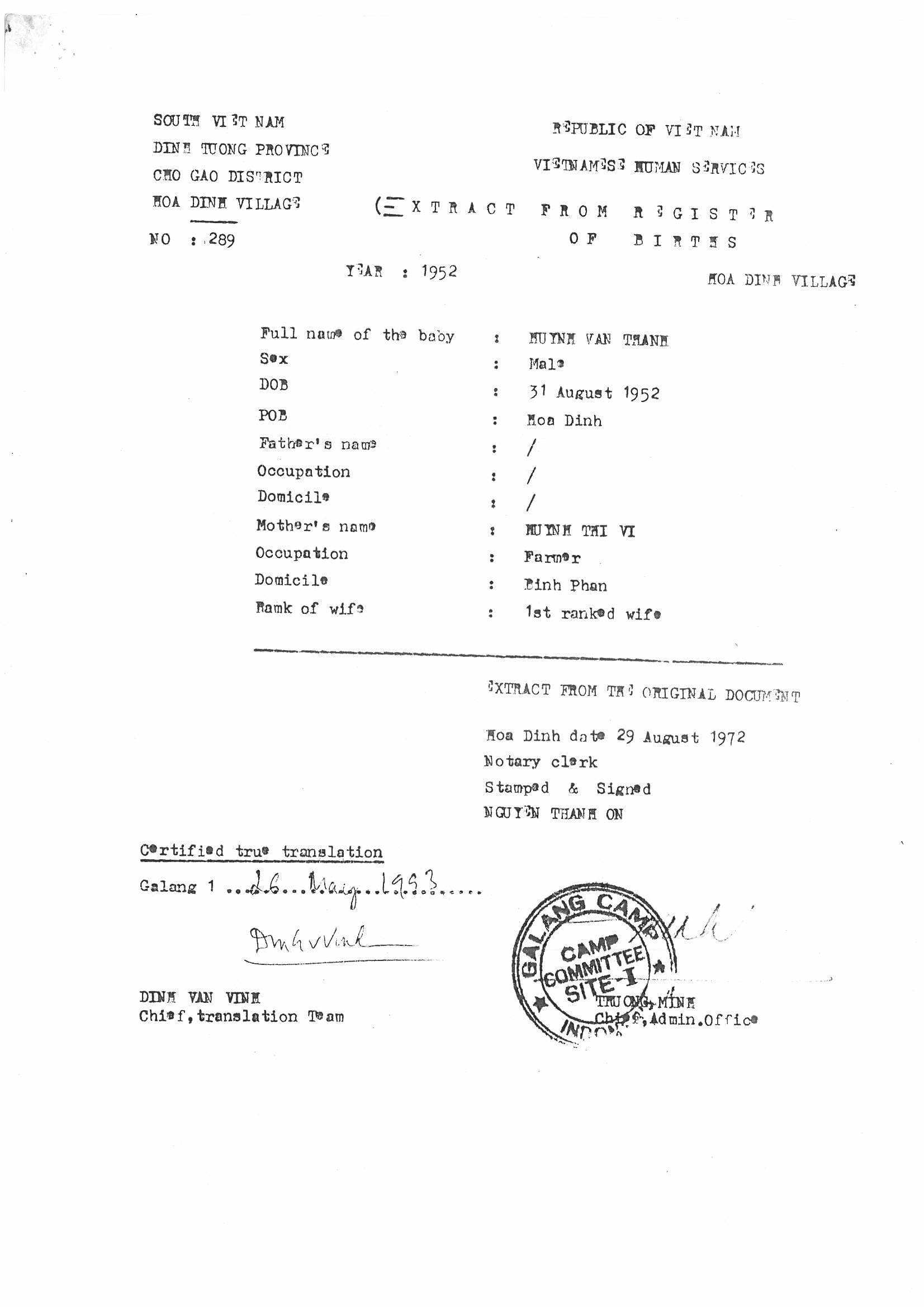
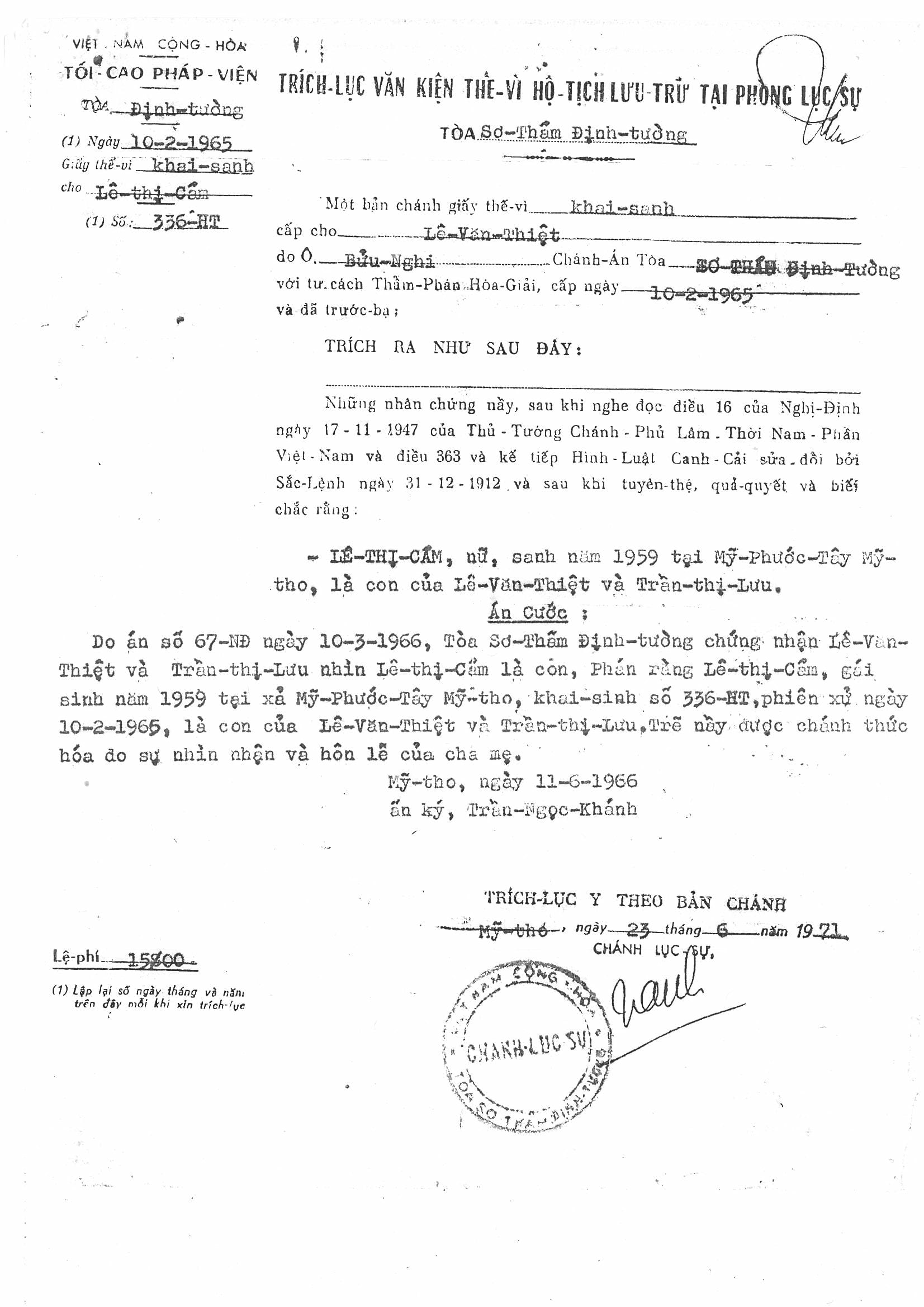
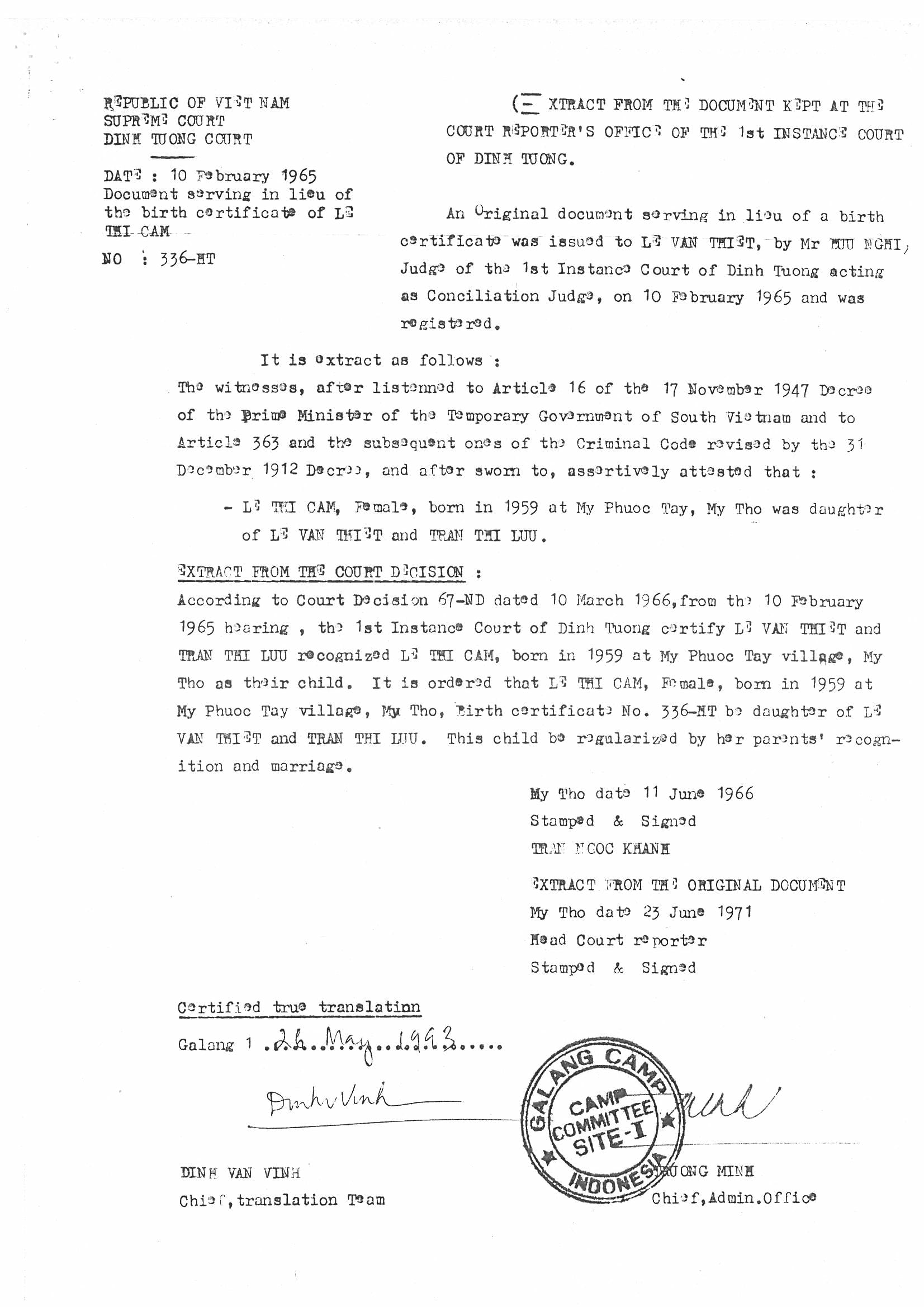
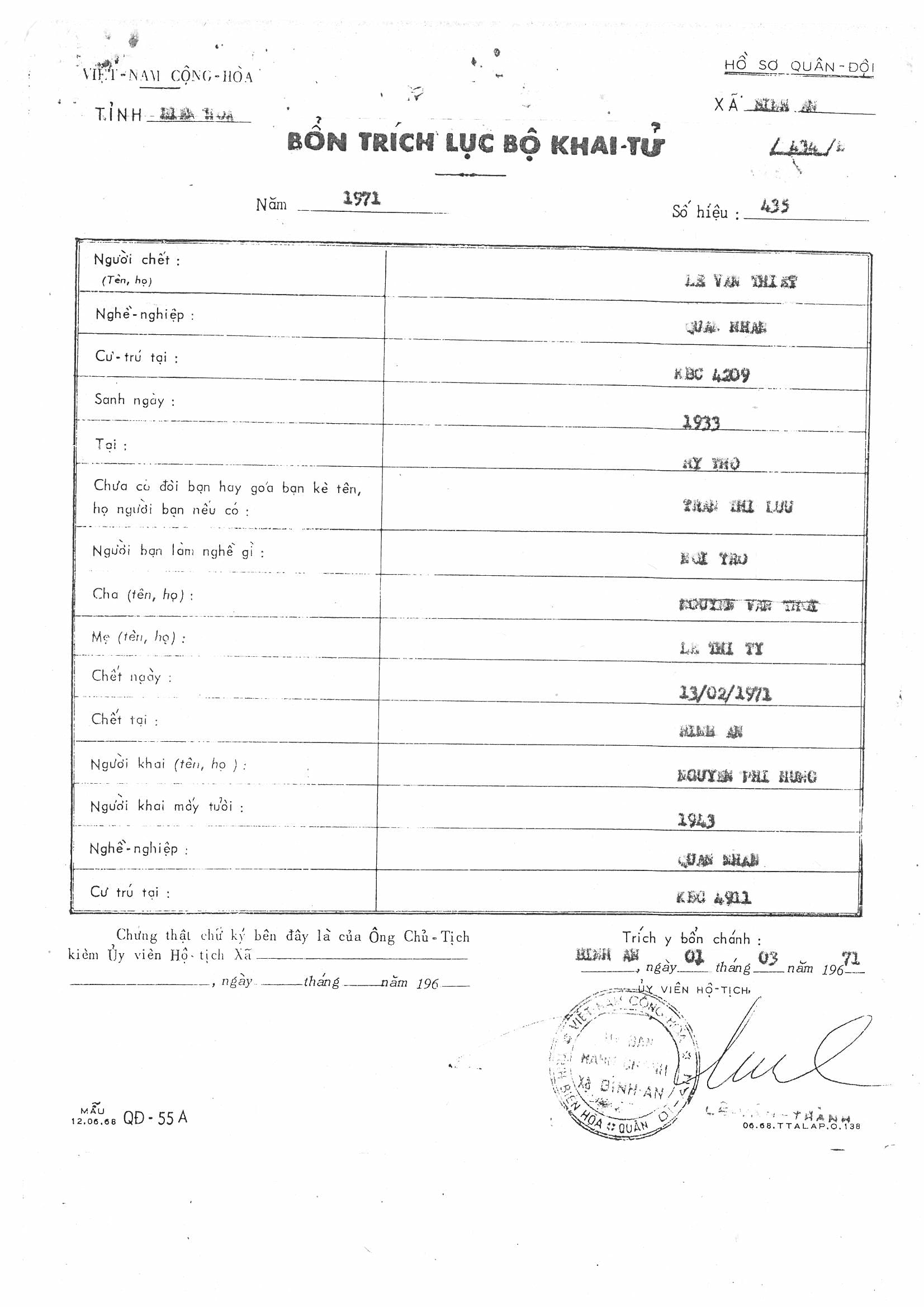
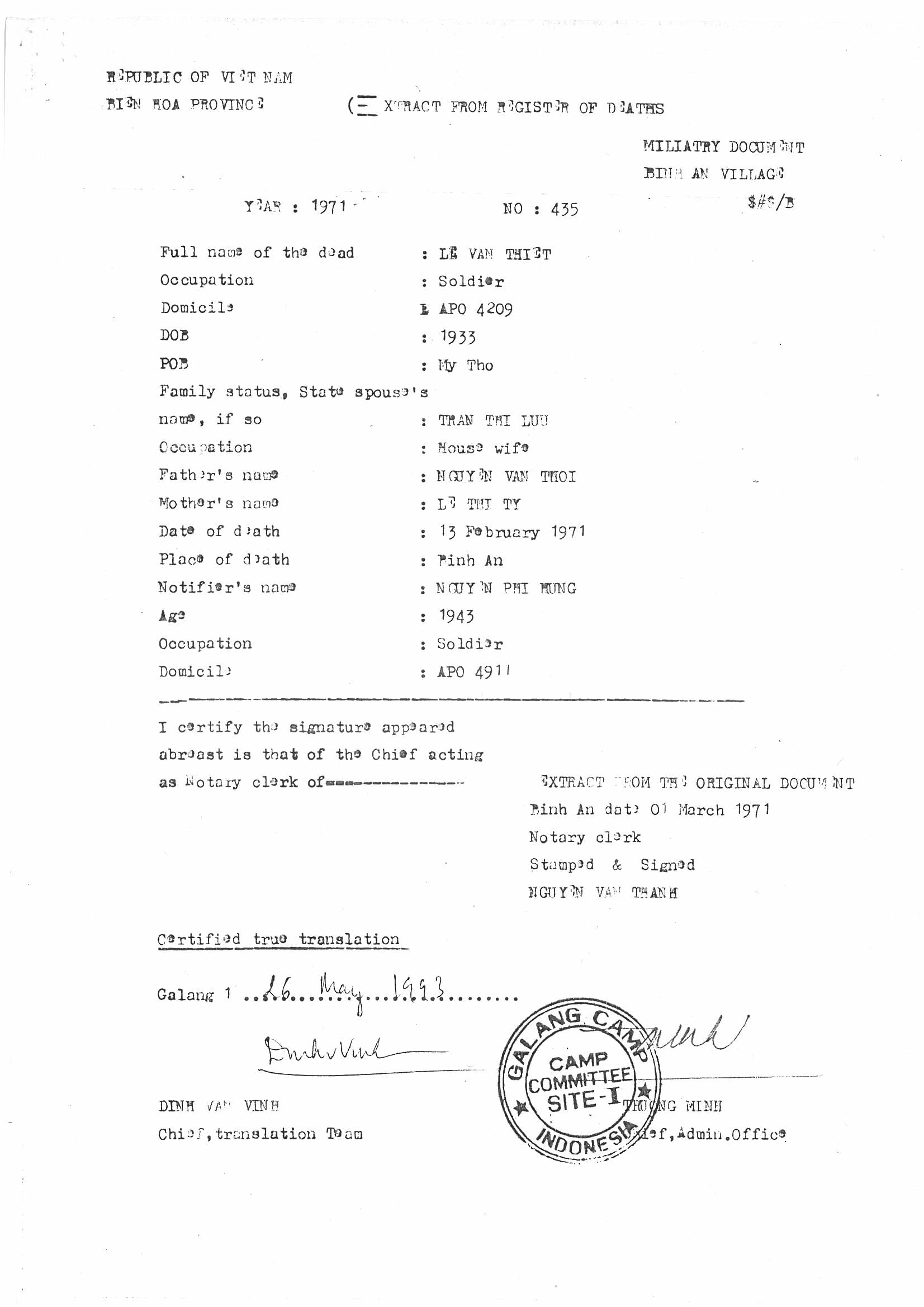
We are deeply grateful to BPSOS, especially the Youth Program Coordinator, Trung Nguyen, for allowing us to have access to these archives, and to the Vietnamese Studies Students at Southeast Asian Studies Summer Institute of University of Wisconsin-Madison (SEASII) for helping us translate some of the documents that didn't come with official translations.
